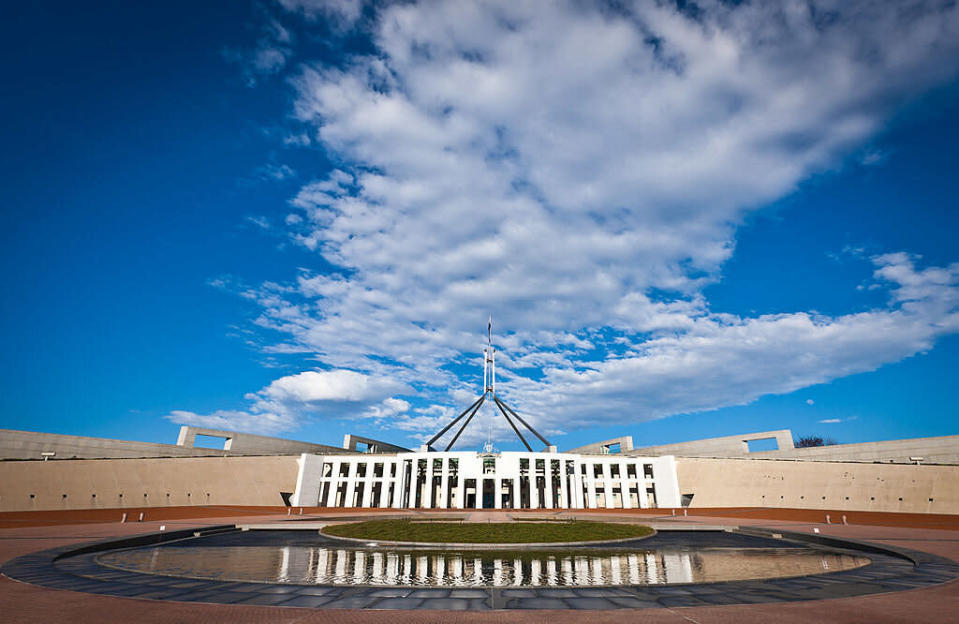Labor vs Liberal: Who to vote for if you're worried about our economy...

The election result this Saturday has huge implications for the future of Australia.
At a time of rapid and frankly mind boggling change in the way the economy works, society functions, the population ages as we live longer and the changing climate impacts the way we all live, Australia needs a government that is ‘in sync’ with these dynamics.
Policies must be framed that take account of these changes because failure to do so will leave Australia floundering relative to the rest of the world.
Related article: Labor vs Liberal: Who to vote for if you're a home-owner, investor or renter...
Related article: Labor vs Liberal: If you’re a migrant or refugee...
Related article: $10 billion and 6 weeks long: These are election costs around the world
Other countries are using some of these challenges to grow and enhance their economies in a productive and innovative way.
In the election campaign, Prime Minister Scott Morrison is offering not much more than income tax cuts.
The ABC’s 730 Chief Political correspondent, Laura Tingle simple noted that Morrison “has just one policy – tax cuts”.
While most people love lower taxes, there is little else of significance in Morrison’s policy agenda that takes account of the changing global dynamics.
This may be good short term politics – the polls have narrowed - but it may be an agenda that in the more medium term actually hurts Australia’s economy.
Opposition leader Bill Shorten, on the other hand, has a far reaching range of policies.
Shorten wants to adjust the tax system so that those on high incomes or with substantial wealth lose access to a range of tax loopholes that until now has meant they pay minimal tax or received government cash hand outs because of their share investments.
With the extra revenue for the government from these reforms, Shorten will fund enhanced education, health and dental care, renewable energy, electric cars and infrastructure among other things.
Shorten is also planning to boost childcare support and if elected will push for stronger wages growth.
In any language it is a bold agenda and is in stark contrast to the small target being offered by Morrison.
It remains to be seen whether the electorate warms to the small target of Morrison, or the more visionary agenda of Shorten.
There is some evidence that Morrison has struck a chord with the voters who are keen to resist change with the polls suggesting a potentially tight race.
This approach is, unfortunately, akin to a failing business that was slow to adapt to new technology and changed social spending patterns, and were overrun by agile and adventurous firms.
Australia needs to embrace the changes that are occurring, or ride on the coat tails of that change if need be.
Whether you like it or not, or believe in renewable energy driven by solar and wind farms, electric cars or decent levels of pay to attract workers in to the workforce, there is absolutely no doubt that in a decade or two, most of electricity in the world will come from renewables, electric cars will dominate car sales (they will probably be driverless cars in any event) and that the work force will need skills and pay levels to make the economy function smoothly.
Australia risks being left behind if it does not embrace policy settings that will see it actively participate in these changes, perhaps even lead them if we have investment funds going to develop these new technologies.
The rest of the world is powering ahead which means Australia needs to move fast just to keep up.
It takes bold, sometimes unpopular decisions to get a platform that will change the way the economy works.
It remains to be seen whether enough people in the electorate can see the need for change or whether they will put their head in their hands and try to resist the tide of change.
Make your money work with Yahoo Finance’s daily newsletter. Sign up here and stay on top of the latest money, news and tech news.

 Yahoo Finance
Yahoo Finance 